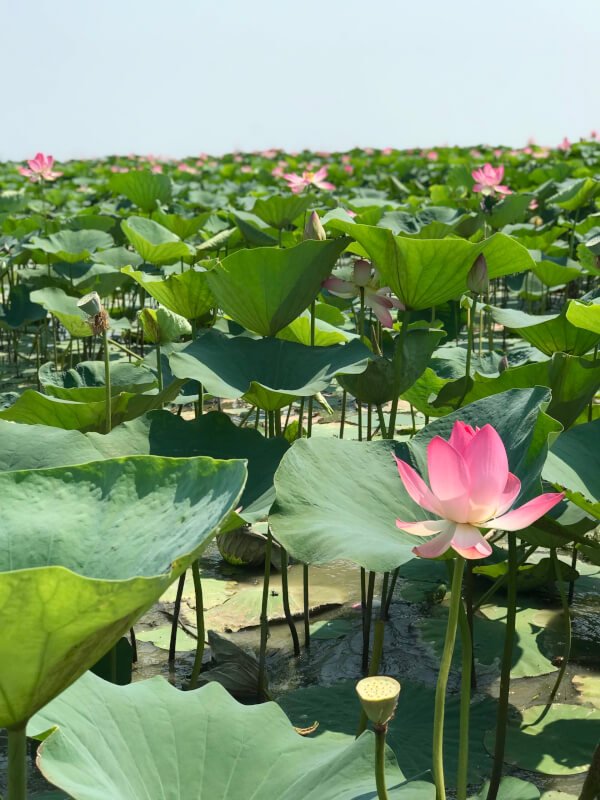If you’re a tea lover looking for a fresh and healthy twist, then get ready to embark on a flavorful journey through your very own garden. In this article, we’ll share a collection of delicious herbal tea and infusion recipes that you can easily make at home using ingredients straight from your garden. From soothing chamomile blends to invigorating mint concoctions, these recipes will not only tantalize your taste buds but also provide a range of health benefits. So grab your mug and let’s explore the world of homemade herbal teas and infusions together!
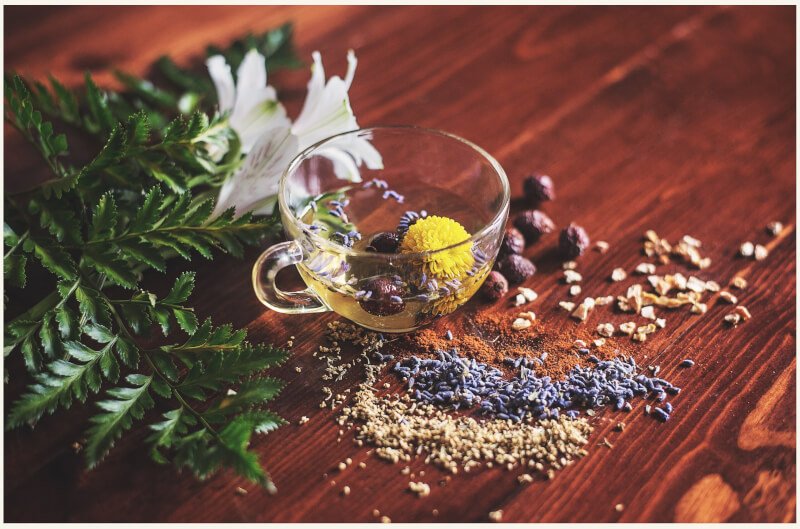
Types of Herbal Teas and Infusions
Chamomile Tea
Chamomile tea is a popular herbal tea known for its calming properties. It is made from the flowers of the chamomile plant, which are dried and brewed to create a delightful and fragrant tea. Chamomile tea has been used for centuries to help with sleep, reduce anxiety, and soothe digestive issues. Its soothing and gentle flavor makes it a perfect choice for winding down after a long day.
Peppermint Tea
Peppermint tea is another widely consumed herbal tea that offers both refreshing taste and numerous health benefits. Made from the leaves of the peppermint plant, this tea is known for its ability to aid digestion, alleviate bloating and nausea, and provide relief from headaches. The cooling sensation and invigorating aroma of peppermint make it a popular choice for those seeking a revitalizing and refreshing tea experience.
Lemon Balm Tea
Lemon balm tea is a refreshing herbal tea made from the leaves of the lemon balm plant. It has a light lemony flavor and is often used to promote relaxation and reduce stress. Lemon balm tea is also known for its ability to improve mood, aid digestion, and enhance cognitive function. Whether enjoyed hot or cold, lemon balm tea is a delightful and soothing beverage for any time of the day.
Ginger Tea
Ginger tea is a robust and invigorating herbal tea made from the root of the ginger plant. It has a spicy and warming flavor that is known to help with digestion, reduce inflammation, and alleviate nausea. Ginger tea is often used to soothe an upset stomach or relieve symptoms of the common cold. Whether enjoyed plain or with a touch of honey and lemon, ginger tea is a comforting and flavorful beverage that can be enjoyed year-round.
Lavender Infusion
Lavender infusion is a fragrant and floral herbal drink made from the petals of the lavender plant. It is known for its calming and relaxing properties, making it an excellent choice for promoting sleep and reducing anxiety. Lavender infusion can be enjoyed on its own or combined with other herbs to create a soothing and aromatic blend.
Rosehip Tea
Rosehip tea is a tangy and fruity herbal tea made from the fruit of the wild rose plant. It is rich in vitamin C and antioxidants, making it a popular choice for boosting the immune system and supporting overall health. Rosehip tea is also known to have anti-inflammatory properties and can aid in weight loss. With its unique flavor and nutritional benefits, rosehip tea is a delightful addition to any tea collection.
Health Benefits of Herbal Teas and Infusions
Boosts Immune System
Herbal teas and infusions, such as rosehip tea, chamomile tea, and ginger tea, are packed with antioxidants and vitamins that can help strengthen the immune system. These teas provide a natural way to support overall health and combat common illnesses.
Relieves Digestive Issues
Peppermint tea and ginger tea are well-known for their ability to soothe digestive troubles. Peppermint tea can help reduce bloating, gas, and indigestion, while ginger tea can alleviate nausea and aid in digestion. Regular consumption of these herbal teas can help improve overall digestive health.
Reduces Stress and Anxiety
Lemon balm tea and chamomile tea have long been used for their calming properties. These herbal teas promote relaxation, reduce stress and anxiety, and provide a sense of tranquility. Enjoying a cup of lemon balm tea or chamomile tea can be a wonderful way to unwind after a hectic day.
Promotes Relaxation and Sleep
Certain herbal teas, like lavender infusion and chamomile tea, are known for their sleep-promoting properties. These teas can help calm the mind, relax the body, and improve sleep quality. Enjoying a warm cup of lavender infusion or chamomile tea before bedtime can help you unwind and prepare for a restful night’s sleep.
Provides Antioxidants
Herbal teas and infusions are rich in antioxidants, which help protect the body against free radicals and oxidative stress. Antioxidants can contribute to overall health and well-being, and regular consumption of herbal teas can provide a natural source of these beneficial compounds.
Aids in Weight Loss
Certain herbal teas, such as rosehip tea, have been associated with weight loss benefits. Rosehip tea can help boost metabolism and suppress appetite, making it a valuable addition to a weight loss regimen. Incorporating rosehip tea into a healthy diet and exercise routine can support weight management goals.
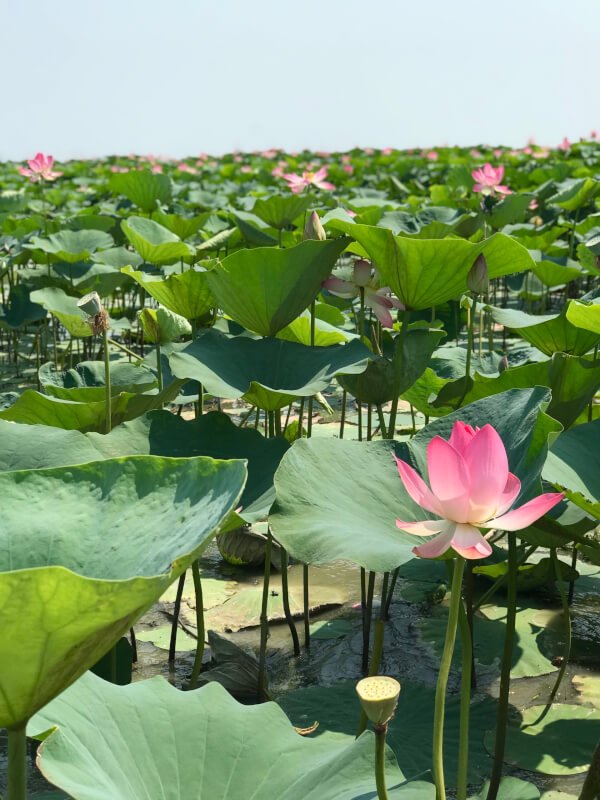
Harvesting and Drying Herbs
Choosing the Right Time to Harvest
When harvesting herbs for tea, it is important to choose the right time to ensure optimal flavor and potency. In general, herbs should be harvested in the morning after the dew has dried but before the heat of the day. This is when the essential oils in the herbs are at their peak, resulting in the best flavor and aroma.
Proper Techniques for Harvesting
To harvest herbs for tea, use a pair of sharp scissors or garden shears to snip off the stems just above a leaf node. This encourages new growth and ensures the plant remains healthy. Avoid tearing or damaging the leaves as this can affect the quality of the herbs.
Drying Herbs for Long-Term Use
After harvesting, it is crucial to dry the herbs properly to preserve their flavor and medicinal properties. Hang the herb bundles in a dry and well-ventilated area, away from direct sunlight. Once the herbs are completely dry, remove the leaves from the stems and store them in airtight containers in a cool, dark place. Properly dried and stored herbs can be enjoyed for several months.
Preparing Herbal Tea and Infusions
Basic Herbal Tea Recipe
To make a basic herbal tea, follow these simple steps:
- Bring water to a boil.
- Place the desired amount of dried herbs or tea leaves in a teapot or cup.
- Pour the boiling water over the herbs.
- Let steep for 5-10 minutes, depending on desired strength.
- Strain the tea and serve hot.
Hot Infusion Method
The hot infusion method involves steeping herbs in hot water to extract their flavor and beneficial properties. This method is suitable for most herbs and is the preferred method for making herbal teas.
- Bring water to a boil.
- Place the desired amount of dried herbs or tea leaves in a teapot or cup.
- Pour the boiling water over the herbs.
- Let steep for the recommended time, usually 5-10 minutes.
- Strain the tea and serve hot.
Cold Infusion Method
The cold infusion method is ideal for more delicate herbs or when a milder flavor is desired. This method involves steeping herbs in cold water for a longer period to extract their essence slowly.
- Place the desired amount of dried herbs or tea leaves in a jar or pitcher.
- Fill the container with cold water.
- Cover and let the herbs steep in the refrigerator for 4-8 hours, or overnight.
- Strain the infusion and serve chilled.
Combining Herbs for Flavor and Health Benefits
Experiment with different combinations of herbs to create unique flavor profiles and maximize health benefits. For example, combining chamomile and lavender can enhance relaxation, while adding ginger to lemon balm tea can provide a refreshing and soothing blend. Be creative and tailor the herb combinations to your personal preferences and desired health benefits.
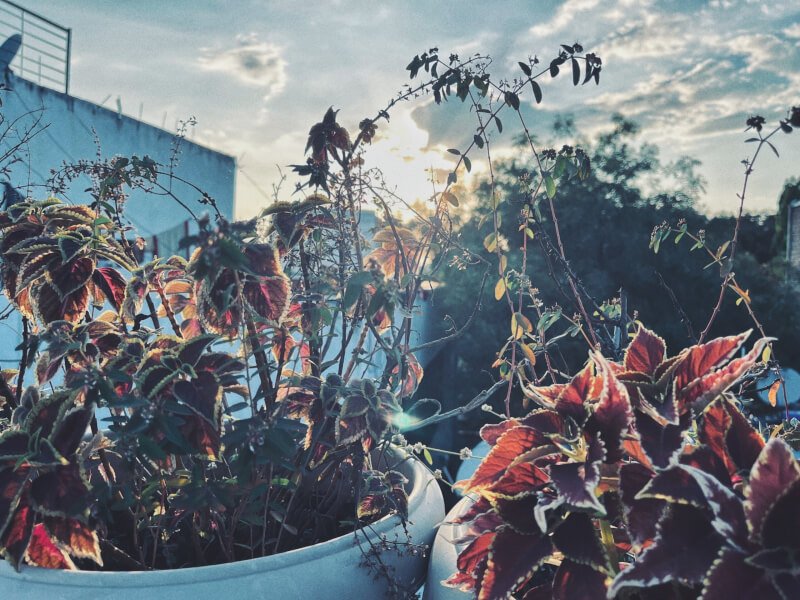
Garden-to-Table Herbal Tea Recipe Ideas
Chamomile and Lavender Relaxation Blend
- Mix equal parts dried chamomile flowers and lavender petals.
- Follow the hot or cold infusion method to prepare the tea.
- Steep for 5-10 minutes and enjoy as a relaxing evening beverage.
- Add honey or lemon for additional flavor, if desired.
Minty Digestive Aid Infusion
- Combine dried peppermint leaves, spearmint leaves, and fennel seeds.
- Use the hot infusion method to brew the tea.
- Steep for 5-10 minutes and drink after meals for a soothing digestive aid.
- Optionally, add a touch of honey or lemon for taste.
Refreshing Lemon Balm and Ginger Tea
- Blend dried lemon balm leaves and ginger root slices.
- Prepare the tea using the hot infusion method.
- Let steep for 5-10 minutes and enjoy hot or chilled.
- Sweeten with honey or lemon, if desired.
Energizing Rosehip and Hibiscus Infusion
- Combine dried rosehip fruit and hibiscus petals.
- Follow the cold infusion method to prepare the tea.
- Let steep in the refrigerator for 4-8 hours or overnight.
- Serve chilled with a squeeze of lemon and a drizzle of honey.
Storing and Preserving Herbal Teas and Infusions
Proper Storage Containers
To preserve the freshness and flavor of herbal teas and infusions, store them in airtight containers made of glass or metal. Avoid using plastic containers as they can absorb odors and affect the taste of the teas. Additionally, ensure that the containers are kept in a cool, dark place away from direct sunlight to prevent degradation of the herbs.
Keeping Herbs Fresh
To maintain the freshness of herbs used for tea, be sure to use proper harvesting and drying techniques. Store dried herbs in airtight containers and keep them away from excessive moisture, heat, and sunlight. Properly dried and stored herbs can retain their quality for several months.
Freezing Herbal Tea for Longevity
If you have an abundance of fresh herbs, consider freezing them to extend their shelf life. To freeze herbal tea, brew a concentrated batch of tea, then pour it into ice cube trays. Once frozen, transfer the tea cubes to a freezer-safe container or bag. When needed, simply pop a tea cube into hot water and enjoy a fresh cup of herbal tea.
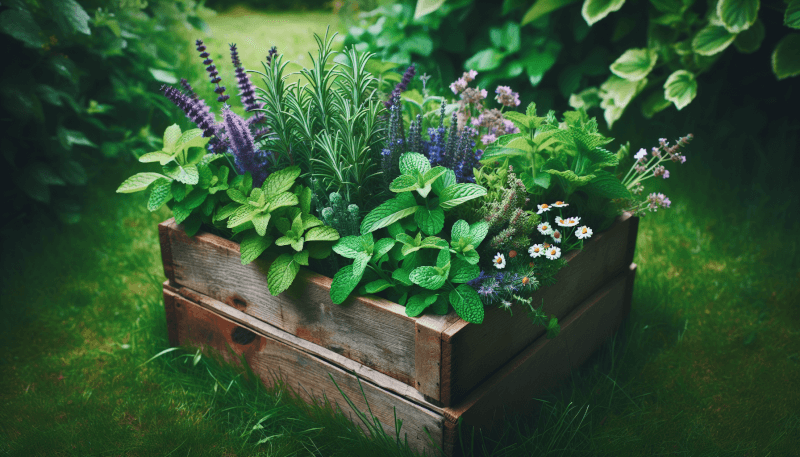
Using Herbal Teas and Infusions in Culinary Recipes
Herbal Tea as Liquid Ingredient
Herbal teas can be used as a flavorful liquid ingredient in various culinary recipes. Replace water or other liquids in recipes such as soups, stews, sauces, and grains with herbal tea to infuse them with a unique taste and aroma. For example, use chamomile tea in a quinoa pilaf or replace chicken broth with rosehip tea in a vegan soup.
Infused Herbs in Baking
Incorporate dried herbs into your baked goods for a subtle and delightful flavor. Add crushed lavender buds to cookies or scones for a hint of floral essence, or infuse your cake batter with peppermint tea for a refreshing twist. Experiment with different herbs and recipes to create unique and delicious treats.
Herbal Tea as Marinades or Dressings
Herbal teas can be used as a base for marinades and dressings, adding depth and complexity to your dishes. Combine brewed herbal tea with ingredients like olive oil, vinegar, lemon juice, and spices to create flavorful marinades for meat, tofu, or vegetables. Use infused herbal tea as a base for dressings to drizzle over salads or roasted vegetables.
Creative Ways to Enjoy Herbal Teas and Infusions
Iced Herbal Tea Lemonade
Combine chilled herbal tea with freshly squeezed lemon juice, sweetener of choice, and ice cubes for a refreshing and revitalizing iced tea lemonade. Customize the flavors by using different herbal teas or adding a splash of fruit juice for an extra burst of flavor.
Herbal Tea Smoothies
Take your smoothies to the next level by incorporating herbal teas. Brew a strong batch of herbal tea, let it cool, and blend it with your favorite fruits, yogurt, and sweetener. Not only will herbal teas add a unique flavor, but they will also provide added health benefits to your smoothies.
Herbal Tea Ice Cream
Infuse herbal teas into your homemade ice cream base for a delightful and aromatic treat. Brew a concentrated herbal tea, strain it, and add it to your ice cream mixture before freezing. The flavors of the herbal tea will be beautifully infused into the ice cream, creating a unique and delicious frozen dessert.
Herbal Tea Cocktails
Get creative with your cocktail recipes by incorporating herbal teas into the mix. Use brewed herbal tea as a base for refreshing summer cocktails or experiment with herbal tea-infused syrups for unique flavor combinations. Mix and match herbs and spirits to create your own signature herbal tea cocktails.
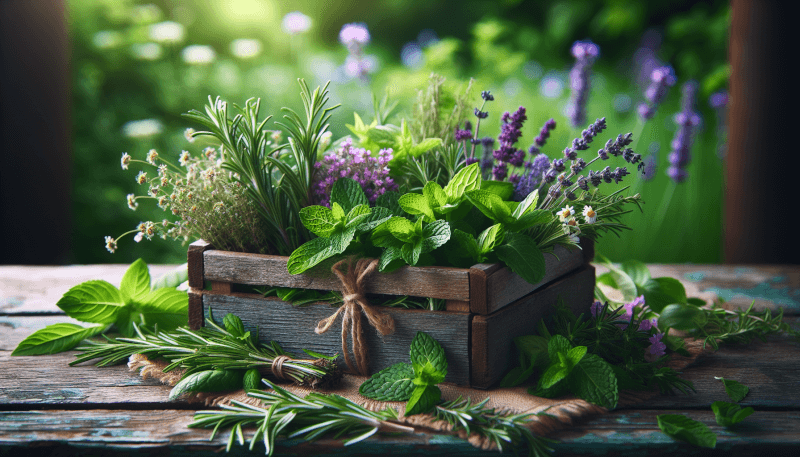
Exploring Medicinal Properties of Herbal Teas and Infusions
Herbal Teas for coughs and sore throats
Certain herbal teas, such as licorice root tea and slippery elm tea, are known for their soothing properties for coughs and sore throats. These herbal teas can help relieve irritation, reduce inflammation, and provide temporary relief from coughing and throat discomfort.
Herbal Infusion for Skin Health
Some herbs, like chamomile and calendula, have properties that can benefit the skin. Brewing these herbs into a strong infusion and using it as a facial toner or a gentle rinse can help soothe dry skin, reduce inflammation, and promote a healthy complexion.
Herbal Teas for Menstrual Cramps
Herbal teas containing ingredients such as ginger, cinnamon, and raspberry leaf have been used traditionally to alleviate menstrual cramps. These teas can help relax the uterus and reduce pain associated with menstrual cycles. Sipping on a warm cup of these herbal teas during menstruation may provide some relief.
Conclusion
With a wide range of flavors and health benefits, herbal teas and infusions are a wonderful addition to any garden and kitchen. From chamomile and peppermint to lavender and rosehip, there are endless possibilities for creating delicious and healthful herbal beverages. Explore different combinations, experiment with garden-to-table recipes, and discover the joy of homemade herbal teas and infusions. Cheers to your health and happiness with a soothing cup of herbal goodness!

